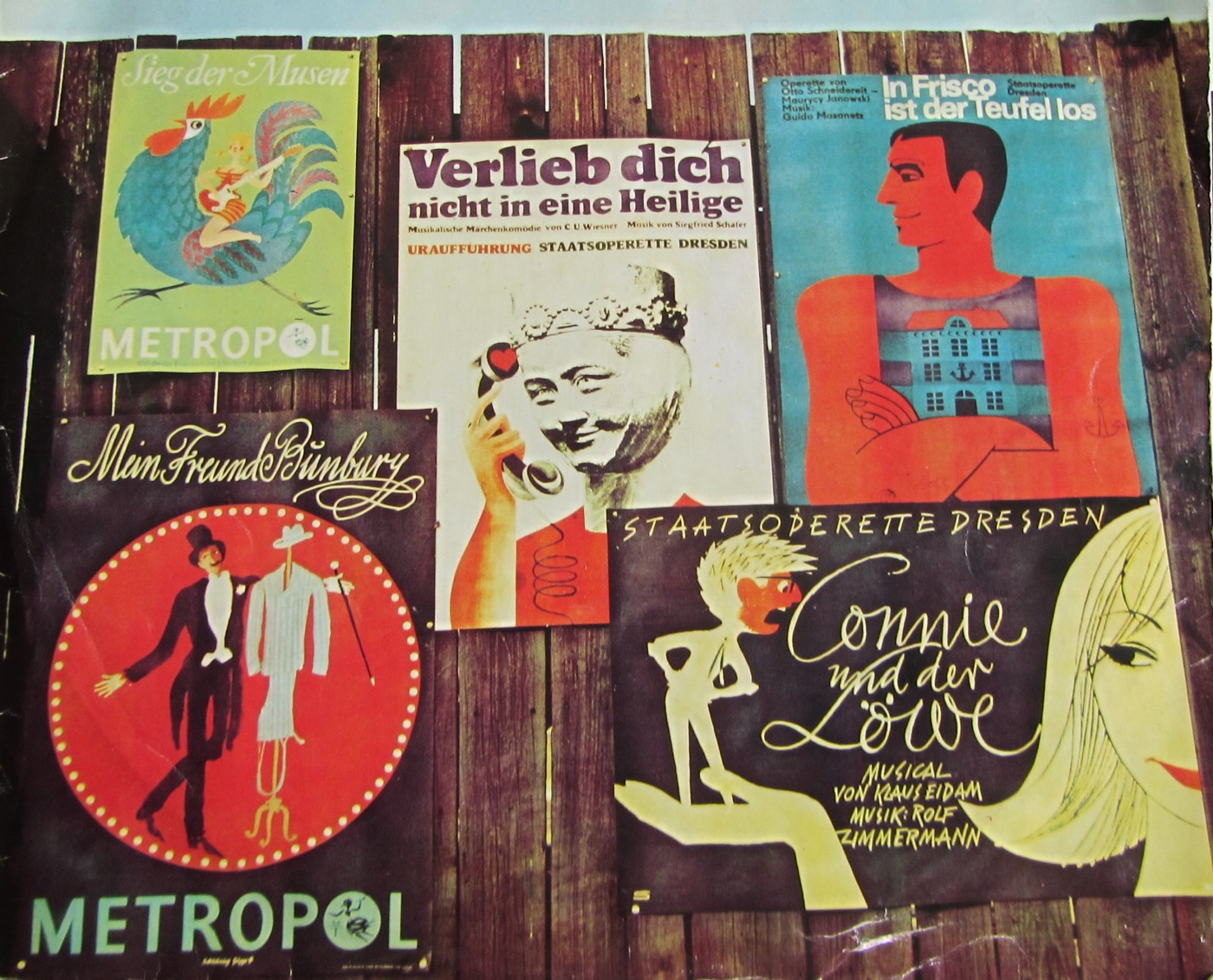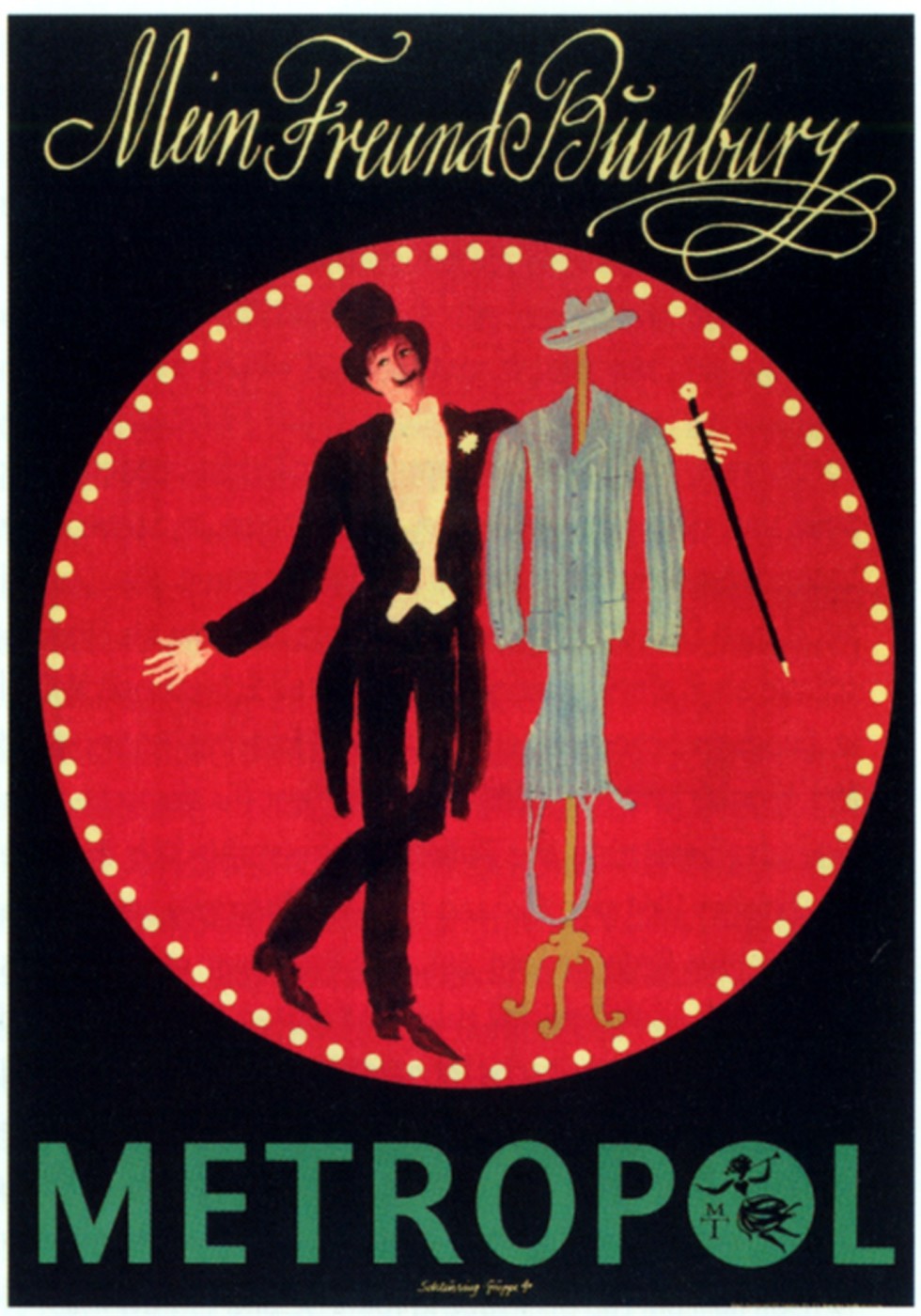Kevin Clarke
Operetta Research Center
18 July, 2020
Various opera houses in German speaking countries have presented new or adapted programs for their fall season, with productions they can play indoors in times of Corona. Among the more interesting news that came to us in this context is a new staging of Gerhard Kneifel’s “DDR Operetta” Bretter, die die Welt bedeuten, opening on 18 September at Musikalische Komödie in Leipzig.

Scene from the 1970 world premiere production of “Bretter, die die Welt bedeuten” at Metropol Theater Berlin. (Photo: From the catalogue “Welt der Operette” / Österreichisches Theatermuseum / Brandstätter Verlag)
Shows from the former socialist Easter part of Germany, i.e. shows that premiered in the DDR pre-1989, have stirred intense new interest lately. An operetta conference in Leeds examined these shows in 2019 and presented various young researchers who are taking a close look at the historic importance of these works (also of works in communist Czechoslovakia or Hungary during the times of the Iron Curtain).
Semperoper Dresden dedicated an entire concert to DDR operettas earlier in 2020, the radio station MDR recorded and broadcasted that concert with commentary, Staatsoperette Dresden is considering highlighting DDR works in the future, as is Komische Oper Berlin in the post-Kosky years (or so rumor has it).

Various famous operettas from Eastern Germany, as presented on an LP cover in the GDR.
In Leipzig itself the university has a new research department for “Heiteres Musiktheater,” which was the official term for musicals and operettas newly created to reflect to socialist realities in the DDR. The university of Leipzig is collaborating with the music department of the university of Halle, where DDR operettas are also researched, among others by Katrin Stöck.
So, in a way, this new production at Musikalische Komödie is the official kick-off for hopefully many new productions in the years to come. Their Bretter, die die Welt bedeuten will be performed at Westbad, the company’s substitute venue while the main house in under renovation.
In their press release, the company states: “This musical by Gerhard Kneifel takes us to the world of a ‘walking tour’ at the turn of the century. Premiered in 1970 at Berlin’s Metropol Theater, the show uses the effective farce Raub der Sabrinerinnen by the brothers Franz and Paul von Schönthan as a basis. The librettists Helmut Bez and Jürgen Degenhardt – who also wrote the libretti for Gerd Natschinski’s Mein Freund Bunbury – parody the life of a troop of strolling players, as well as that of German Kleinbürger or petit bourgeois. It’s a musical about ‘outer’ appearance and actual ‘being,’ it is also a core work of DDR musical theater history, moving between pop, chanson, waltz, rock music and ragtime. Stage director Cush Jung is simultaneously also the commentator in this newly adapted performance version.” The texts Mr. Jung presents are newly written for this production by Daniel Hirschel.

The artistic directors of Musikalische Komödie Leipzig: (l. to r.) Torsten Rose, Cusch Jung, and conductor Stefan Klingele. (Photo: Ida Zenna)
The new online encyclopedia Musicallexikon has an entry on Bretter, die die Welt bedeuten. We learn there that the world premiere was staged by Hans-Joachim Martens, and it was conducted by Werner Krumbein. Among the cast members we find the name of Maria Mallé, who was part of the Semperoper concert in 2020 which the Operetta Research Center co-presented.
A 1970 reviewer writes about the show: “Aus dem Figurenreichtum des Stückes knüpfen die Autoren eine Kausalkette von episodischen Geschehnissen und kontinuierlichen Nebenhandlungen, darauf abgestimmt, die sich der Fabel andeutende sozialkritische Tendenz zu unterstreichen [...]. Doch erreichen, scheint mir, Bez/Degenhardt bei weitem nicht jene Präsenz und Brisanz des Sozialkritischen wie im Freund Bunbury“. (Wolfgang Lange: „Striese kriegt ein Domizil, ‘Bretter, die die Welt bedeuten’ von Bez/Degenhardt/Kneifel am Metropol-Theater Berlin“. In: Theater der Zeit, Heft 7, 1970).

Poster for “Mein Freund Bunbury” at the Metropol Theater in East-Berlin, 1973.
So it’s something to look forward to, and it marks the beginning of a new operetta era at Musikalische Komödie after they explored works that were created during Nazi times, which was an interesting counterpoint to Barrie Kosky’s revival of Weimar Republic works. We now move past Weimar and past the Nazis to the fascinating post-war realities of German language operetta in Socialism. Let’s hope there will be a recording!
For more information and performance dates, click here.
